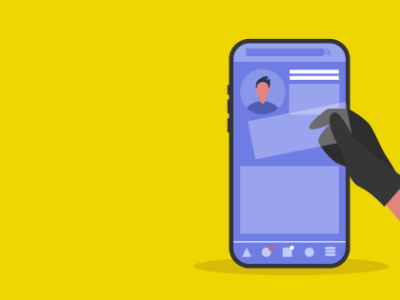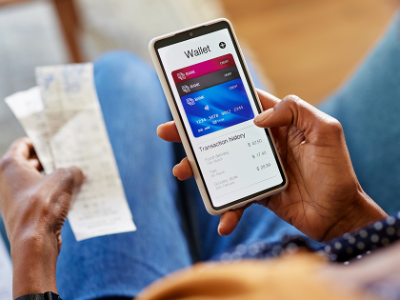Chances are, you’ve fallen victim to one of these yourself or know someone who has. Email scams, phishing, a scam website — scammers will use any method they can think of to trick people into revealing their passwords, financial information, Social Security numbers and other personal data they can use to steal identities.
A big part of protecting yourself against identity theft is being aware. Learn about six of the most common identity theft techniques and scams below, including what to watch out for and how to keep you and your loved ones safe.
1. Telemarketer or tech support scams
Be wary of anyone requesting personal information from you over the phone. Phone fraud scams vary from telemarketers calling you with a special, limited time offer to people impersonating government agencies and credit card companies. Some criminals might pretend that they are calling to protect you from a virus or malware detected on your computer, making you vulnerable to online scams as well.
Do not let anyone on the phone pressure you into sharing financial or personal information — no matter what stories they tell you. If you get a call, ask for the information in writing and then call the company back directly using their official customer service number found on their website to confirm whether the call was legitimate.
2. Data breaches and fallout scams
According to security experts, nearly every company is vulnerable to breaches, and cybercriminals are getting more sophisticated about how they hack into systems, meaning that it often takes companies months before they realize your data was stolen.
This means that by the time you find out about the breach, your information could have been circulating for weeks or months on underground sites. The best defense you have against data breaches is a credit monitoring and Internet surveillance program that constantly scans underground sites and will let you know if your information shows up there.
After big data breaches are exposed, thieves will often exploit the opportunity by sending out fake emails impersonating the very company that experienced the data breach. Some emails might mention the breach and offer free credit monitoring or ask you to verify your information. Never click on these. Instead, go to the company’s website directly or call the company to ask about details or any offers.
3. Tax fraud
Every year, the IRS pays billions of dollars in fraudulent tax returns. To file a fraudulent online tax return, all criminals need is a name, date of birth and Social Security number. Then they forge a W-2 and e-file with ease, knowing that the IRS doesn’t verify returns before paying out refunds. The first time the IRS becomes aware of the problem is when a second return is submitted for the same taxpayer.
Because the IRS operates on a “pay refunds first, ask questions later” model, the sooner you file, the less likely someone else will file in your name before you do.
4. Medical scams
Medical identity theft is when someone uses another person’s name and information from health records to get medical service or make false insurance claims. Once information is stolen, a thief may see a doctor, get prescription drugs or file claims with an insurance provider.
You can’t control whether breaches happen at hospitals or medical organizations where your information is on file, but you can control the information you share. When asked to provide personal information (such as your Social Security number or birthdate), find out why it’s needed, how it will be kept safe, whether it will be shared and, if so, with whom.
5. Email hacking
You've probably received at least one such email: it comes from a friend or family member containing nothing but a random link and/or one line of sales copy. This means that person’s email has been hacked into. Alert them to it right away. If the hacking happens to you, make sure to install good security software from a reputable company to scan your computer for viruses and spyware. Change all your passwords immediately, too.
6. Credit or debit card skimming
“Skimmers” are devices that are added to machines such as ATMs, gas pumps or fast food payment stations to intercept your card information. Criminals use that information to make cloned cards. Sometimes, they add a camera to the machine so that they can see you enter your PIN – that way they have your card and PIN numbers and can completely drain your account.
Skimmers can be hard to spot (check out this gallery of different types of skimmers) but there are some things you can keep an eye out for. If any part of the machine looks different in color or material from the other parts, it might be a skimmer. If any part is loose, it might be a skimmer.
One last tip: at ATMs, always cover up the keypad with your other hand as you enter in your PIN. If a camera is installed, this will block the view



